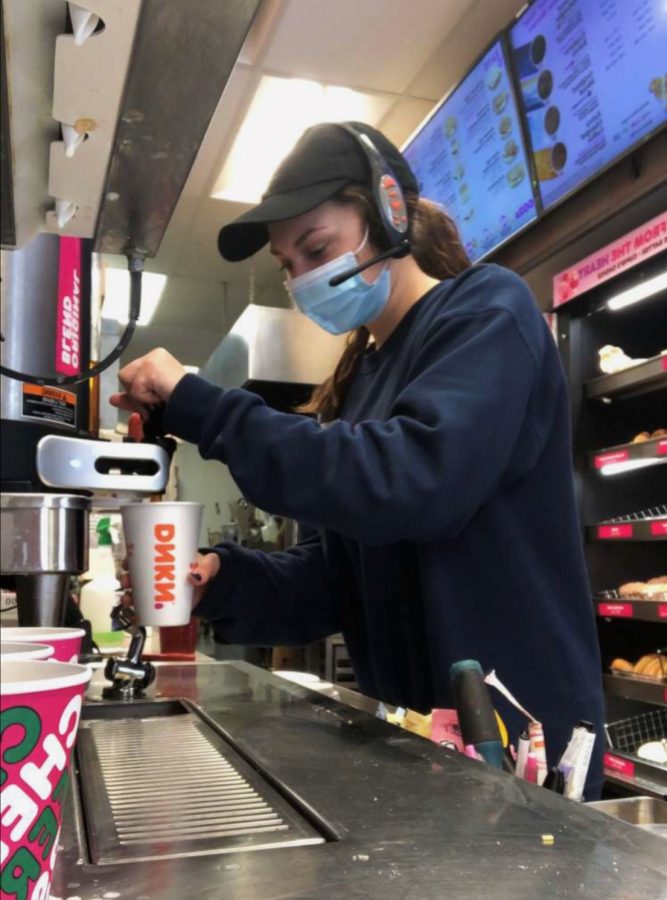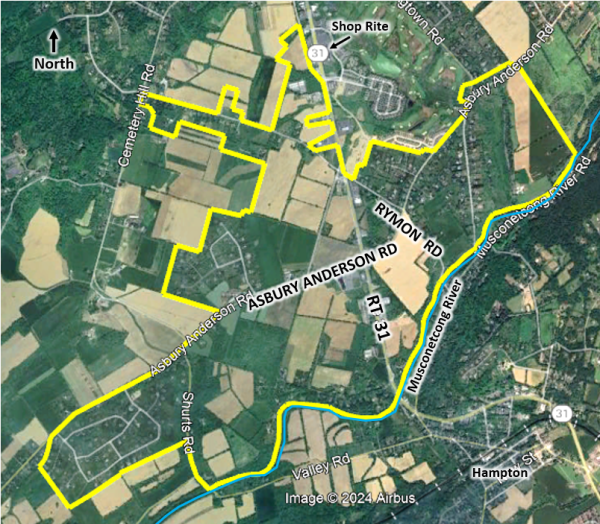Pandemic Makes Jobs Scarce for Teens
(Photo courtesy of Ellie Kachala)
Ellie Kachala, a Warren Hills junior, prepares a customer’s drink at Dunkin, where she works when she is not in school or at Swimming Team practice.
Students at Warren Hills and people everywhere have been recently experiencing a hard time finding jobs. This is because businesses are being forced to shut down, let go of staff, or put on hiring freezes due to the ongoing COVID-19 crisis. Along with the struggles of online school, students are struggling to find work.
Even before COVID-19 struck the United States early last year, students experienced difficulty in finding the time to apply to businesses and to continue to work difficult shifts. For some, having an income is essential.
Julia Bisse, a sophomore at Warren Hills, said that she landed her first job at the Land of Make Believe seasonal amusement park in Hope Township toward the beginning of the summer.
“They were really desperate for workers then, so I got the job really easily,” Bisse said.
Toward the fall, for most students it became a bit harder to find jobs. Bisse said that “by the grace of God” she was able to find work at nearby Von Thun Farms in Washington.
Bisse also said that since school started it’s been impossible to find anything. She feels like it’s most likely a combination of her being only 15 and the pandemic delaying her.
The Center on Budget and Policy Priorities, a nonpartisan organization based in Washington, D.C., reports that the types of jobs usually sought by teenagers — part-time and low-wage jobs — have disappeared more than twice as fast as medium-wage and high-wage jobs in the United States.
“The majority of jobs lost in the crisis have been in industries that pay low average wages, with the lowest-paying industries accounting for 30 percent of all jobs but 58 percent of the jobs lost from February [2020] to December,” the center reported on its web site.
When students find employment, the stress of online school leaves little time for them to get their classwork done while balancing their jobs.
Recently, students have found that applying to numerous businesses for employment has been a one- to two-month process. This is because most students are minors and bosses seem reluctant to hire new people during the pandemic.
Warren Hills junior Ellie Kachala has gone through these obstacles herself. When asked how her experience was when applying for a job at Dunkin, she said, “In the end, it took about one-and-a-half to two months until I finally met with the manager for my interview.”
Kachala was then hired the week after that. The whole process took so long because the manager at the Dunkin indicated that she had to go through her boss for permission to hire anyone new. This did not used to be the case.
Not only are high school students struggling with finding jobs, but people all over the country are. For example, Emily Brown, a former student at Warren Hills, has been set back in finding an internship that could help qualify her to graduate from Elon University in North Carolina. Brown is required to complete an internship within her major in order to graduate. Due to the pandemic, Brown has struggled greatly finding a spot.
“Businesses I was interested in before are now not giving internships due to COVID,” Brown said.
Even with age on her side, the effects of COVID-19 on the U.S. economy and employment opportunities remain major obstacles.






